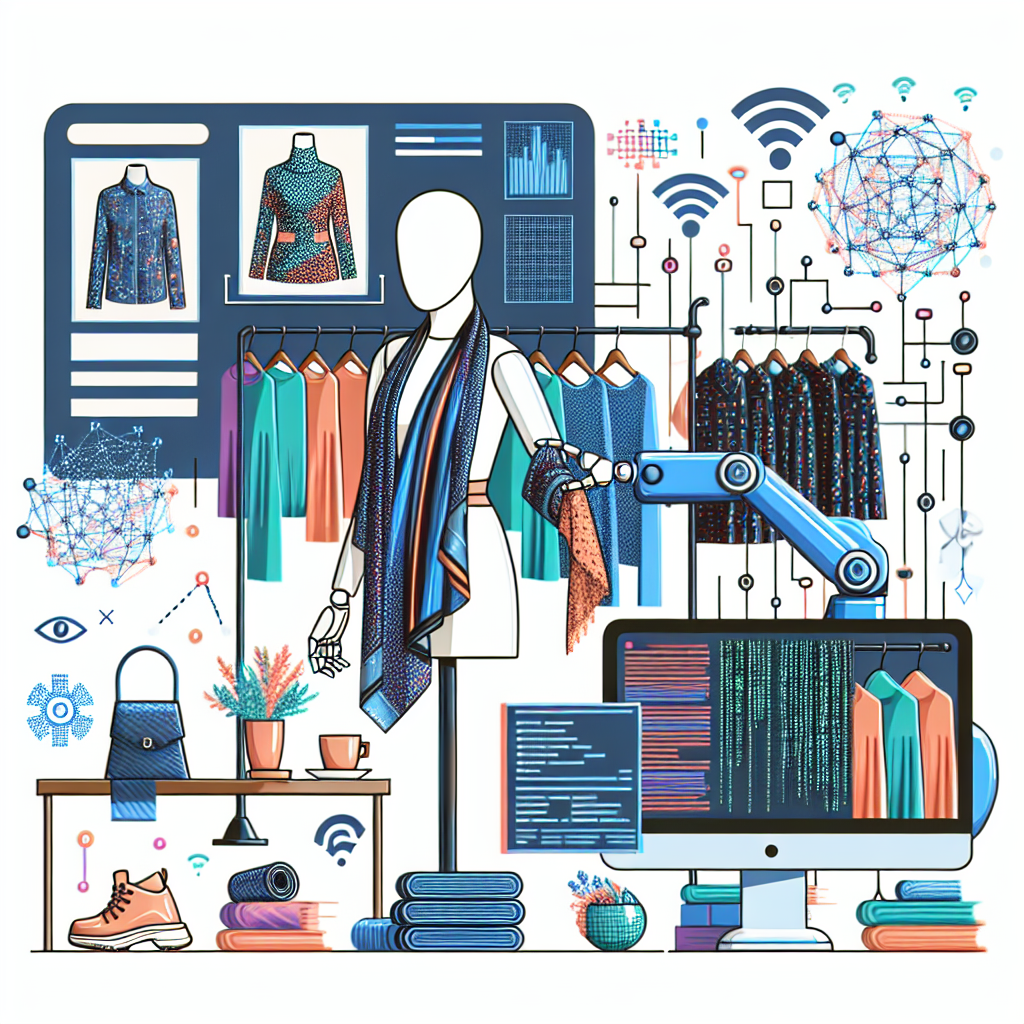The Impact of AI on Fashion E-Commerce
Artificial Intelligence (AI) has been transforming various industries, and the fashion e-commerce sector is no exception. AI technology is revolutionizing the way consumers shop for clothing and accessories online, providing personalized recommendations, enhancing the shopping experience, and optimizing business operations for retailers. In this article, we will explore the impact of AI on fashion e-commerce and its implications for both consumers and businesses.
Personalized Recommendations
One of the key ways AI is revolutionizing the fashion e-commerce industry is through personalized recommendations. AI algorithms analyze customer data, including browsing history, purchase behavior, and preferences, to create personalized recommendations for each individual shopper. These recommendations are tailored to each customer’s unique style, size, and budget, increasing the likelihood of a purchase.
AI-powered recommendation engines are able to suggest products that are relevant to the customer, leading to higher conversion rates and increased customer satisfaction. By using AI to deliver personalized recommendations, fashion e-commerce retailers can create a more engaging shopping experience that keeps customers coming back for more.
Virtual Try-On
Another way AI is transforming the fashion e-commerce industry is through virtual try-on technology. Virtual try-on allows customers to see how clothing and accessories will look on them without having to physically try them on. AI algorithms analyze a customer’s body shape, size, and style preferences to create a virtual representation of the customer wearing the item.
Virtual try-on technology not only enhances the shopping experience for customers but also reduces the number of returns for retailers. By allowing customers to see how a product will look on them before making a purchase, virtual try-on technology helps customers make more informed buying decisions and reduces the likelihood of returns due to sizing or fit issues.
Supply Chain Optimization
AI is also revolutionizing the fashion e-commerce industry by optimizing supply chain operations for retailers. AI algorithms can analyze data from suppliers, manufacturers, and distributors to optimize inventory management, production scheduling, and logistics. By using AI to predict demand, retailers can reduce excess inventory, minimize stockouts, and improve overall supply chain efficiency.
AI-powered supply chain optimization can help fashion e-commerce retailers reduce costs, improve customer satisfaction, and increase profitability. By automating and optimizing supply chain operations, retailers can ensure that they have the right products in the right place at the right time, leading to a more efficient and responsive business.
Customer Service Chatbots
AI-powered chatbots are another way that AI is impacting the fashion e-commerce industry. Customer service chatbots use natural language processing and machine learning algorithms to provide personalized assistance to customers, answer questions, and resolve issues in real-time. Chatbots can provide 24/7 support to customers, improving the overall customer experience and increasing customer satisfaction.
By using AI-powered chatbots, fashion e-commerce retailers can reduce the burden on human customer service agents, improve response times, and provide more personalized and efficient customer service. Chatbots can also help retailers collect valuable data on customer preferences and behaviors, which can be used to further personalize the shopping experience.
FAQs
Q: How is AI being used in fashion e-commerce?
A: AI is being used in fashion e-commerce to provide personalized recommendations, enhance the shopping experience with virtual try-on technology, optimize supply chain operations, and improve customer service with chatbots.
Q: How does AI improve the shopping experience for customers?
A: AI improves the shopping experience for customers by providing personalized recommendations, virtual try-on technology, and efficient customer service through chatbots. AI algorithms analyze customer data to create personalized recommendations and virtual representations of products, leading to a more engaging and personalized shopping experience.
Q: How does AI benefit fashion e-commerce retailers?
A: AI benefits fashion e-commerce retailers by increasing conversion rates, reducing returns, optimizing supply chain operations, and improving customer service. AI technology helps retailers increase sales, reduce costs, and improve overall business efficiency.
Q: What are some examples of AI-powered tools in fashion e-commerce?
A: Some examples of AI-powered tools in fashion e-commerce include personalized recommendation engines, virtual try-on technology, supply chain optimization algorithms, and customer service chatbots. These tools use AI algorithms to analyze data and provide personalized recommendations, virtual try-on experiences, optimized supply chain operations, and efficient customer service.
In conclusion, AI is revolutionizing the fashion e-commerce industry by providing personalized recommendations, virtual try-on technology, supply chain optimization, and customer service chatbots. AI technology is transforming the way consumers shop for clothing and accessories online, enhancing the shopping experience and optimizing business operations for retailers. As AI continues to evolve, its impact on fashion e-commerce is expected to grow, leading to a more personalized, efficient, and engaging shopping experience for consumers and retailers alike.

